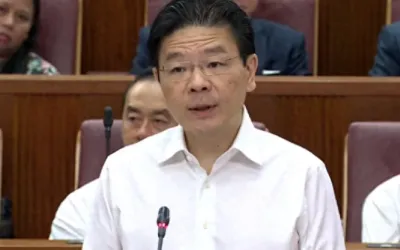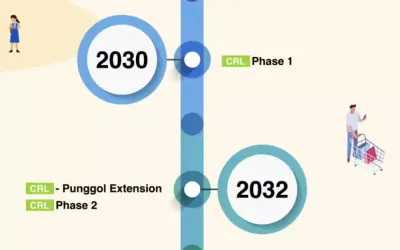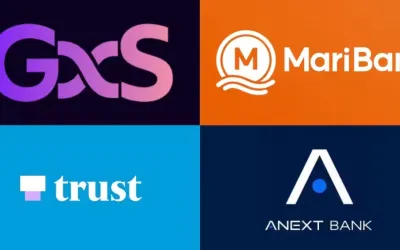2024年4月3日,非選區議員梁文輝在國會上,向人力部長陳詩龍醫生提問關於申請EP准證相關問題。
以下內容為新加坡眼根據國會英文資料翻譯整理:
議員梁文輝(非選區議員)提問人力部長:
自2023年9月1日以來,成功申請新的就業准證(EP)的申請人中,
(i)有多少人豁免互補人才框架(COMPASS)資格標準要求;
(ii)多少人因國籍人數超過公司專業技術人員(PMET)的25%,而得零分;
(iii)多少人因沒有有效學歷資格得零分;
(iv)多少人因公司員工少於25人而自動獲得10分。
陳詩龍(人力部長兼貿工部第二部長):根據互補人才框架的規定,如果申請人固定月薪達到至少22,500新元、公司內部員工調動或者申請職位不超過一個月,可以豁免互補人才框架要求。豁免互補人才框架的薪資門檻與公平考量框架(FCF)的職位廣告要求類似,並且以EP持有者中排名前10%為基準。自2023年9月1日以來,約有10%的成功申請EP的人獲得了互補人才框架豁免。
不到10%的獲批申請在國籍多樣性標準(C3)上因公司專業技術人員(專業人員、管理人員、執行人員和技術人員)中申請人國籍超過25%而獲得零分。約有20%的獲批申請在資格標準(C2)上因未申報任何與學位有關的資格證明而獲得零分。然而,實際上沒有學位資格的申請比例更低,因為任何資格申報都需要伴隨驗證證明。在其他標準中獲得足夠分數的申請人可能選擇不申報其資格。
大約30%的獲批申請因公司規模較小——少於25名專業技術人員,在多樣性標準(C3)和支持本地就業標準(C4)方面默認得分為10分。較小的公司在C3和C4上被給予默認分數,因為它們的員工比例很容易因人員的微小變化而產生偏差。這些申請仍然需要在其他標準上獲得至少20分,以滿足互補人才框架所需的最低標準40分。
不應僅憑單一標準來評估EP候選人的質量。互補人才框架認識到定義候選人質量沒有一刀切的方法。它橫跨六個標準進行評估,考慮到個人和公司層面的屬性,以及候選人是否填補了短缺職位或對新加坡經濟優先戰略作出貢獻。這些標準定期更新,得到經濟機構和三方合作夥伴——全國職工總會及新加坡全國僱主聯合會的意見,以確保保持相關性和嚴密設定範圍。

以下是英文質詢內容:
Mr Leong Mun Wai asked the Minister for Manpower since 1 September 2023, what is the percentage of successful new Employment Pass applicants who received (i) an exemption from the COMPASS eligibility criteria (ii) zero points for having over 25% of the candidate’s nationality among the organisation’s PMETs (iii) zero points for having no degree-equivalent qualifications and (iv) 10 points automatically because the company has less than 25 employees, respectively.
Dr Tan See Leng: Candidates are exempted from COMPASS if they have a fixed monthly salary of at least $22,500, are applying as an intra-corporate transferee or are filling the role for one month or less. The salary threshold for exemption from COMPASS is similar to that for the Fair Consideration Framework job advertising requirement and is benchmarked to the top 10% of Employment Pass (EP) holders. Since 1 September 2023, about 10% of successful EP applications were exempted from COMPASS.
Less than 10% of approved applications scored zero points on the Diversity Criterion (C3) for having over 25% of the candidate’s nationality among the organisation’s professionals, managers, executives and technicians (PMETs). About 20% of approved applications scored zero points on the Qualifications Criterion (C2) for not declaring any degree-equivalent qualifications. However, the actual proportion of approved applications without any degree-qualifications is lower. This is because any qualification declared would need to be accompanied by verification proof. Candidates who have obtained sufficient points across other criteria to pass COMPASS may thus choose not to declare their qualifications.
About 30% of all approved applications scored 10 points by default for the Diversity Criterion (C3) and Support for Local Employment Criterion (C4) because the company was a small firm with less than 25 PMETs. Smaller firms are given default points on C3 and C4 as their workforce ratios are easily skewed by small changes in their personnel. These applications will still need to score at least 20 points on the other criteria to meet the minimum 40 points required to pass COMPASS.
The Member should not judge the quality of EP candidates on the basis of how they perform on any single criterion. COMPASS recognises that there is no one-size-fits-all approach to defining the quality of candidates. Instead, it looks across six criteria, taking into account individual and firm-level attributes, as well as whether the candidate fills a shortage occupation or contributes to a strategic economic priority. The various criteria are updated on a regular basis, with inputs from economic agencies and tripartite partners, the National Trades Union Congress and Singapore National Employers Federation, to ensure that it remains relevant and tightly scoped.
LJ丨編輯
HQ丨編審
新加坡國會丨來源























